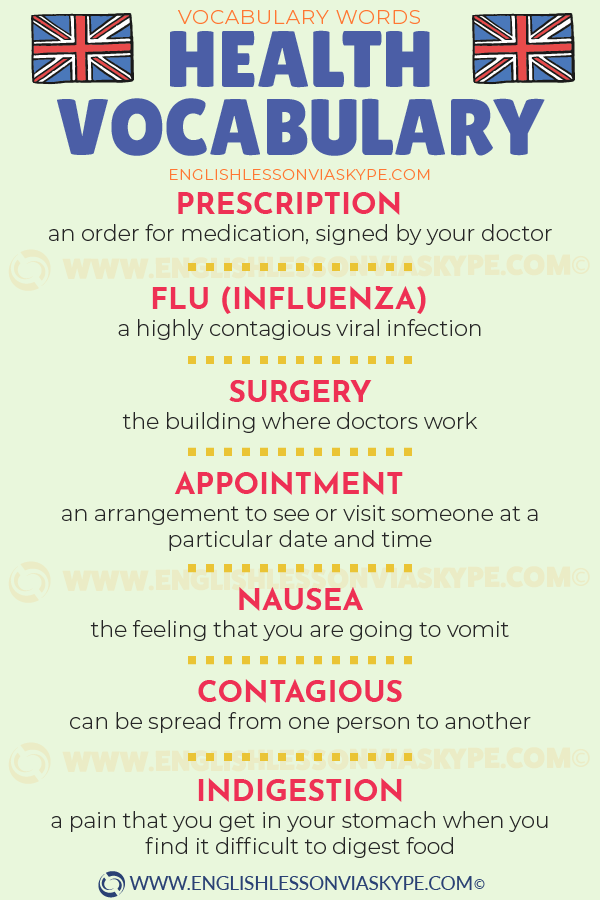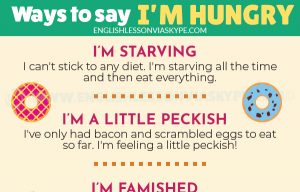Useful vocabulary for talking about health in English.
You don’t feel well. Being sick is never fun, it’s definitely not fun when you can’t communicate about your illness in English-speaking country. Let’s learn the words and phrases to help you describe your symptoms to a doctor.
Check your knowledge of English health vocabulary with interactive quiz ⬇️⬇️
Talking about Health in English

Share and help other students to improve English skills
Intermediate to Advanced English Marathon

INSANITY: doing the same thing over and over again and expecting different results.
Albert Einstein
- What you'll learn:
- better understanding of more complex grammar structures
- advanced English vocabulary words
- British & American slang
- perfect your listening skills through practing different accents
- This marathon is for you if you're:
- stuck at an intermediate English level
- tired of confusing explanations
- a mature student
- shy & introverted
- you should
- you need
- you must
Useful Phrases for Talking about Health in English
Talking about Health in English - Visit to the Doctor Vocabulary
Conversations between Doctor and Patient in English
Visit to the Doctor Vocabulary - Gap Filling Exercise
More Information
You will love these English lessons

Other Words for Hungry in English
Learn other words for hungry in English. In the video lesson below I give you 5 alternative words instead of


English Vocabulary related to Marriage
Here you will learn useful English vocabulary related to marriage and weddings. I will explain the meanings of English expressions


Phrasal Verbs with WEAR
Here you will find a list of English Phrasal Verbs with Wear with meanings and detailed examples. Whether you are